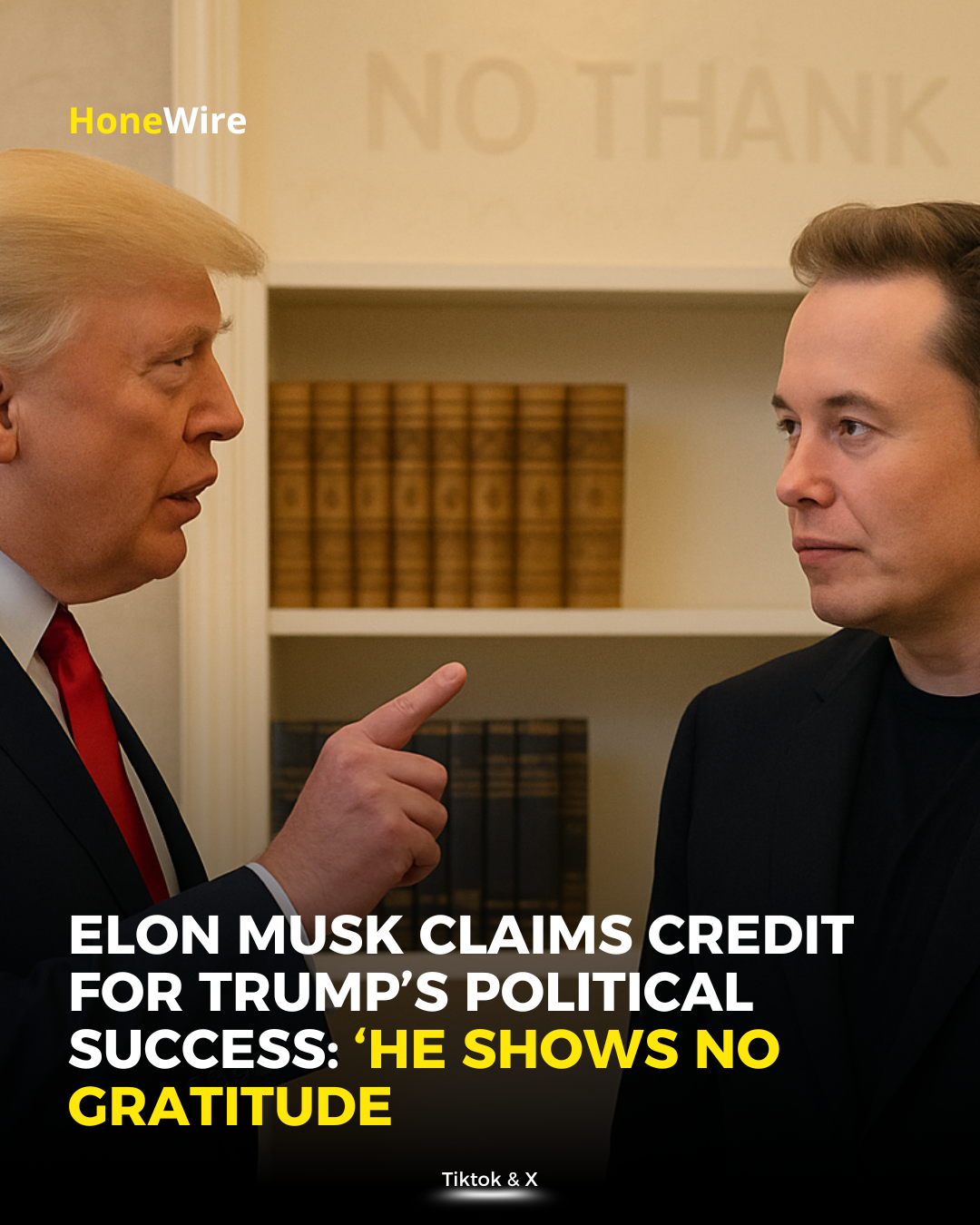In a surprising and bold statement, billionaire entrepreneur Elon Musk has reignited political discourse by claiming that former U.S. President Donald Trump would not have succeeded in the presidential election without his support. The statement, which has quickly gone viral across social media platforms, paints a picture of growing friction between two of the most prominent and controversial figures in American public life.
A Bold Statement in a Complex Political Climate
Speaking during a tech roundtable discussion (or possibly via X, formerly known as Twitter), Elon Musk allegedly stated:
> “If it weren’t for my influence, Trump would’ve lost. He doesn't even show a hint of gratitude.”
This remark comes at a time when both Musk and Trump are navigating increasingly turbulent relationships with the media, government institutions, and the public. Musk, who commands a powerful platform with millions of followers and controls major companies like Tesla, SpaceX, and X, has been known to shape narratives and influence public opinion.
Musk’s Role in Political Influence
Although Elon Musk has not been officially involved in any political campaigns, his online activities and policy commentary have had undeniable ripple effects. His endorsement of particular candidates or policy positions often garners widespread media attention. His influence among tech-savvy, independent-minded voters many of whom overlap with Trump's populist base has arguably helped shape modern political discourse.
During the 2020 and 2024 election cycles, Musk was particularly vocal about topics such as censorship, free speech, energy independence, and economic innovation topics often echoed by Trump’s campaign.
Some analysts suggest that Musk’s public endorsement or criticism can significantly sway undecided voters, particularly younger demographics and moderate conservatives. Thus, Musk’s recent statement appears to be more than mere self-aggrandizement it points to a broader conversation about the intersection of technology, media, and politics.
A Relationship Turned Sour?
Despite a shared disdain for establishment politics, Trump and Musk’s relationship has grown colder over time. While Trump once praised Musk as a brilliant businessman, he later criticized him for being "another liberal elitist who doesn't understand working-class Americans" after Musk criticized Trump’s behavior and policies.
Musk, for his part, has maintained that his political allegiance lies not with any party but with principles particularly those related to innovation, freedom of speech, and government accountability.
This latest accusation of ingratitude further widens the apparent rift between the two titans. Some speculate that Musk is preparing to take a more active political role himself whether through support for alternative candidates or even through direct involvement in political advocacy initiatives.
Public Reactions: Divided but Loud
The public reaction to Musk’s claim has been intense and polarized. Supporters of Musk applaud his honesty and view his words as a justified callout against Trump’s alleged opportunism. Critics, however, accuse Musk of overestimating his political influence and inserting himself unnecessarily into the political fray.
Meanwhile, political strategists note that this friction could have strategic implications in the 2024 U.S. Presidential Election. If Musk’s influence continues to grow and he chooses to support another candidate Trump’s base may face unexpected disruption.
Conclusion: Ego, Power, and Influence in the Digital Age
Elon Musk’s assertion that Donald Trump owes part of his political success to him underscores the evolving nature of power in the digital era. No longer confined to traditional political institutions, influence now flows through billionaires, platforms, and viral narratives. As the 2024 elections approach, the clash of egos between Musk and Trump might prove to be one of the most unpredictable subplots of the American political landscape.

